Should Banabans Call Australia Home
Banaba (Ocean Island) major contribution to Australia's agriculture sector
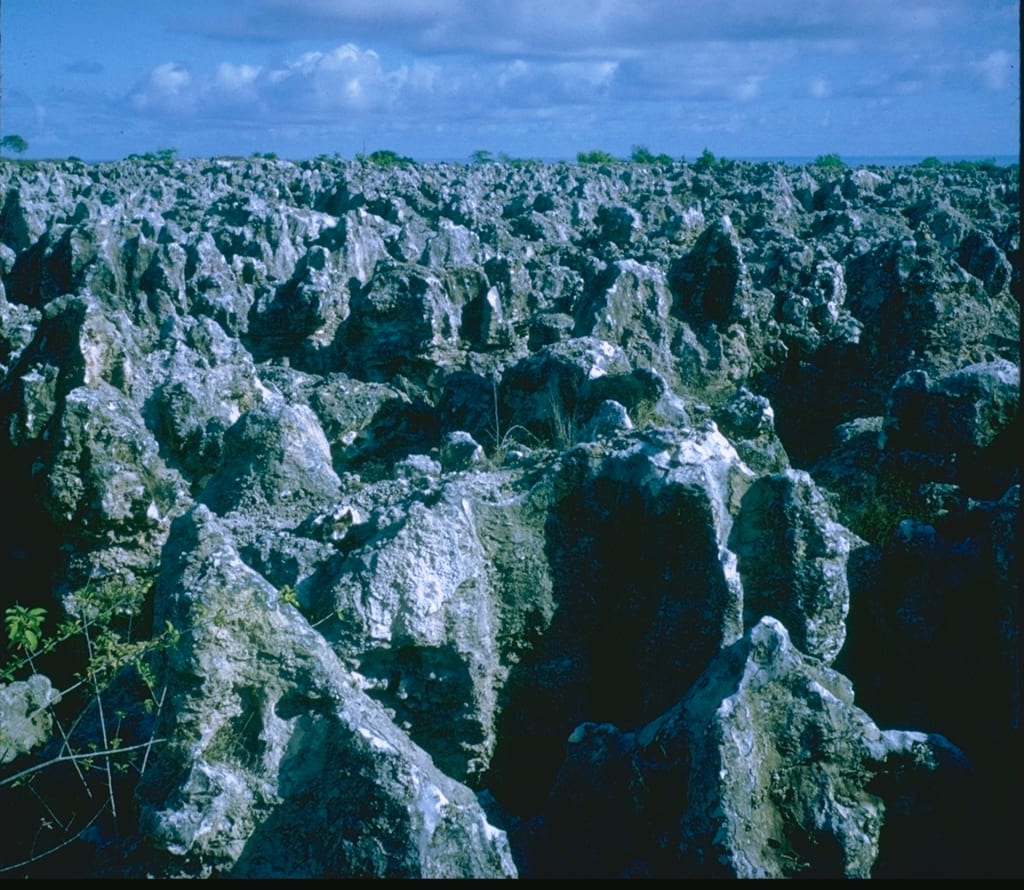
Banabans Call on Australia to recognise their contribution to Australia's nation-building
The prosperity of Australia during the past century was provided from the wealth generated from the nation’s farmlands. One of the major components of this success depended on the subsided use of super-phosphate fertilisers derived from the rich phosphate rock deposits of a small remote Pacific island. In a period spanning eighty years, Australia was a major shareholder in a joint commercial venture with the governments of the United Kingdom and New Zealand to mine Banaba-Ocean Island. Now only twenty-five years later these historical links seem all but forgotten. The Banabans are calling for the Australian government to finally recognise their major contribution in shaping Australian history.
For the Australian government, the Banabans were expendable
“Phosphate is vitally important to Australia and as the phosphate from Ocean Island is urgently required now and will in future be required in progressively increasing quantities for use in Australia and other countries within the Empire it is important that no restrictions shall prevent the development and working of the deposits to the best advantage by the Commissioners … "
The Australian Prime Minister wrote in a telegram dispatched by His Excellency the Governor-General to the Right Honourable, the Secretary of State for Dominion Affairs, dated 22 October 1927. He further stated,
“… as all the phosphate on Ocean Island will be eventually required it appears to Commissioners advisable that steps should be taken to secure another island or islands for the use of the Banabans when Ocean Island is no longer suitable for their habitation …”
This dispatch from Australian Prime Minister, Stanley Bruce was only 27 years after the discovery of phosphate on Banaba (or Ocean Island as it was known during the Colonial period) in 1900. The Banabans, who were the indigenous inhabitants and landowners of the island, were never aware of the plans being made by Australia and Britain for their removal from their homeland. They upheld the innocent belief that the Good King George V of England, as Head of the British Crown, and Head of the Church of England would protect them from ‘evil’. They had no understanding of the political juggernaut they were up against. Over the years, their pleas for help have been ignored, while their court case against Britain would fail, and their homeland would be left devastated by phosphate mining.
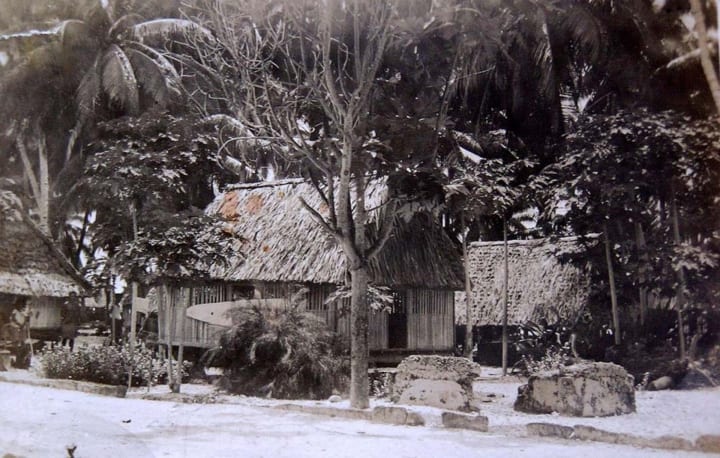
The Banabans today are displaced people who have suffered a century of human rights abuses with the majority of the Banabans living as impoverished minority people on Rabi in the Fiji Isles. They have been left split between two Pacific nations, Kiribati and Fiji, making their voice harder to be heard on the political world stage. The facts of Australia’s complicit role in the destruction of Banaba are clear, yet the Banabans have been left forgotten and ostracised by the governments involved.
Four generations of Stacey King's Australian family were the early pioneers in the phosphate mining industry on Banaba. She believes that while Australia prospered from the phosphate taken from the island, it also contributed to the demise of all the Banabans held so dear. Because of King’s historical links to Banaban history, she believes she has an onus of responsibility to focus on Australia's role in the environmental destruction of the Banaban homeland.
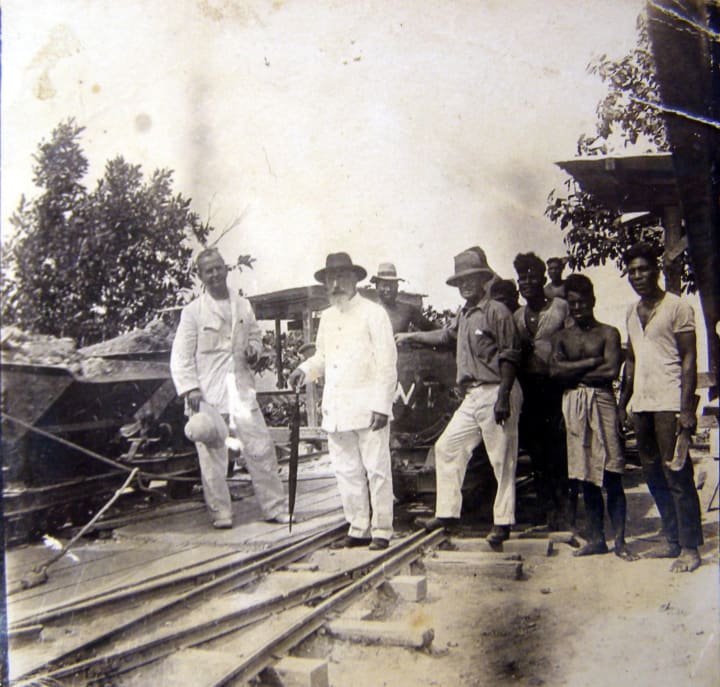
To understand Australia’s key role in Banaban history, it is necessary to go back to when Australia was emerging from British Colonial rule and the role Banaba phosphate would play in the emergence of a new nation.
Between 1855 and 1890, the six Australian colonies (states) individually gained responsible government, managing most of their own affairs while remaining part of the British Empire. By 1901 the establishment of the Commonwealth of Australia or Federation involved bringing all the States of Australia together as one nation while close links remained with Britain and its monarchy with the Colonial Office in London still retaining control over some matters, notably foreign affairs, defence and international shipping. While the nations’ founders were keen to build something new and avoid the pitfalls of the old world, they wanted Australia to be harmonious, united, and egalitarian, to encourage progressive ideas about human rights and the observance of democratic procedures.
At the same time, one of the first acts of the new Commonwealth Parliament was to pass the Immigration Restriction Act 1901, or the White Australia Policy which restricted migration to people of primarily European origin. This law remained intact right up to the end of 1973. The new nation also struggled with the indigenous Aboriginal population and how best to reconcile their way of life and modern society, choosing to confine them to reserves in remote regions of the country. It was not until the 1960’s that Aboriginal people would have effective citizenship and could finally vote (ENIAR: 2006).
While the new Commonwealth or Federation standards of improving human rights seem questionable under today’s standards, significant progress was made towards Nation Building through the development of Australia’s agricultural and manufacturing capacities. Early Australian farms mainly grew wheat crops and raised sheep that had initially been brought over from Europe by the country’s first settlers. Wool became the cornerstone of Australian agriculture, and Australia is often said to have "ridden on the sheep's back" through the founding days of its economic development.
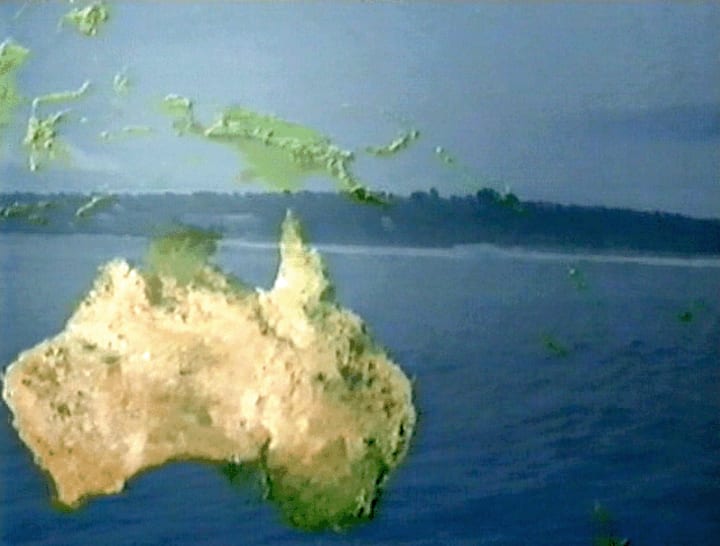
By the early part of the 20th century, Australia's agricultural production had rapidly increased and output expanded well beyond the needs of the Australian population. This increased production led to the country becoming one of the world's leading food exporters. One of the significant components of this success depended on the subsided use of super-phosphate fertilisers derived from the phosphate rock deposits from the Banaban’s equatorial island. The discovery of phosphate rock on Banaba in 1900 had also revolutionised the Australian fertiliser industry.
Today the Banabans have no relationship with Australia, and they are denied recognition for the significant contribution they gave in assisting Australia’s economic growth. For the Banabans, they have no official access to the nation that benefited most from the destruction of their island.
King questions why the Banabans have been left so politically polarised today compared with their nearby Pacific neighbours Nauru when they both were under the same commercial agreement involving the Australian government? Prior to Kiribati independence in 1979, the Australian Government involvement was under the mantle of the United Kingdom’s sovereignty over Banaba. Meanwhile, Nauru was granted full Australian Government recognition. While the Australian Government proudly took over one-third ownership of Banaba’s phosphate reserves and all the associated financial benefits that followed they have never accepted any onus of accountability for their actions in destroying Banaba and the forced relocation of its people.
During the 80 years of mining that followed the Banabans paid the ultimate price with over 20 million tons of Banaba’s soil containing the crushed bones of their ancestors would be taken away from them with more than 13 million tons scattered over Australian farmlands. The near-destruction of a remote Island and its meagre population of just 450 people would never stand in the way of such progress.
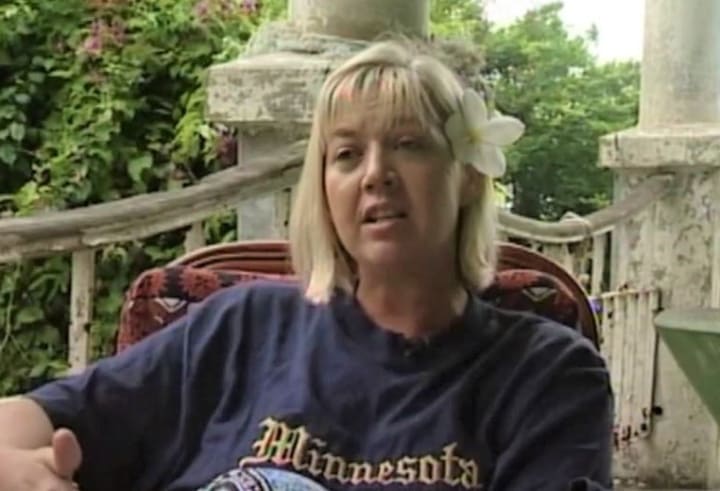
During a television interview recorded with King on Banaba in 1997 for BBC UK, she called on the governments involved in the mining of Banaba to act.
“We are the ones who have brought the Banabans into this modern world now we cannot just turn our backs on them and walk away. Look at this Island; it had some of the world’s leading technology, so now let’s use technology again to make this place a showplace and show the world what can be done to repair and rehabilitate an island. We must provide them with development and the necessary infrastructure, including water, development projects and the necessary equipment needed.”
King also believes that as an Australian citizen especially with her own family’s involvement in the mining of Banaba she has every right to ask her government to officially recognise the Banabans contribution they have made and suffered in the process of providing Australia with the wealth and prosperity all Australians now enjoy.
Furthermore, under the current political sphere, the Banabans now find they are a minority people or Fourth World People (McCall 2004) split under the governance of two-third world nations. Over the past decade, the sourcing of aid and development projects for the two Banaban communities has been restricted due to the current political restrains they are now under.
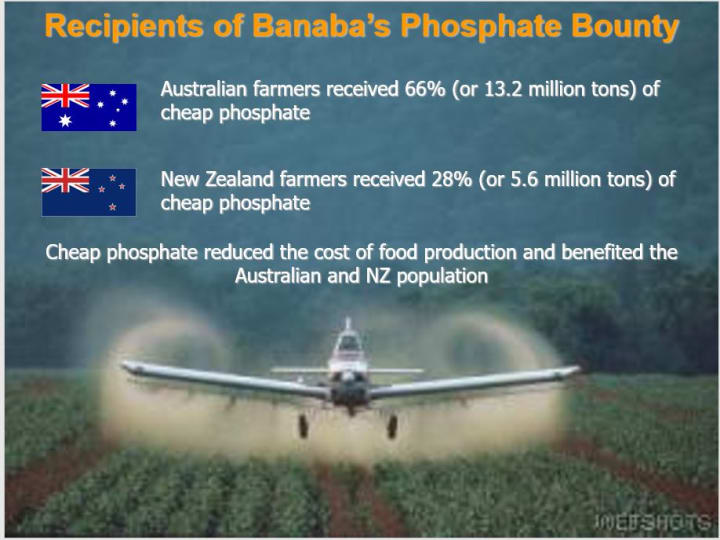
In King’s, Australia 2020 Summit submission, “Recognition of the Banaban contribution to Australia’s prosperity as a farming nation” she stated:
“No other country has paid such a devastating price to help build our nation. Today the Banabans are calling on the Australian government to formally recognise their major contribution and historical relationship to this country. The Banabans ask for Australia’s assistance in the areas of education and development that will allow them to also move towards a much brighter future, and provide hope for their future generations.”
___________________________________
First published: Banaban Vision blog Aug 2019
Excerpts of conference paper: Australia-Banaba Relations: the price of shaping a nation is now a call for recognition, by Stacey King
View more detailed information on the Conference Paper.
About the Creator
Stacey King
Stacey King, a published Australian author and historian. Her writing focuses on her mission to build global awareness of the plight of the indigenous Banaban people and her achievements as a businesswoman, entrepreneur and philanthropist.






Comments
There are no comments for this story
Be the first to respond and start the conversation.